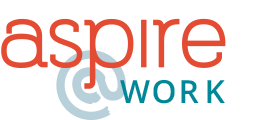Based on our book Six Paths to Leadership (Palgrave Macmillan, 2021), this session can be delivered as either a keynote or workshop. We have versions ranging from 60 minutes to multi-day workshops, depending on the audience and learning objectives.
We offer insights based on commonalities and differences across six successful paths to leadership. Thousands of books and articles reference leadership and leadership positions in our society. Whether they focus on the characteristics of effective leaders, how to onboard senior executives, or how to nail the top leadership position. While each offers something worthy of reflection, rarely do they make distinctions based on the path the leader took to reach that leadership position. Mark Clark and Meredith Persily, leadership professors and coaches, believe this distinction matters! We will outline the critical distinctions and commonalities across six leadership paths in private and public sector organizations: promoted, outside hire, elected, appointed, founded, and family legacy. We compare the advantages and challenges of each of the paths and share strategies that leaders can successfully apply across the paths. For leaders who pursue and/or transition across paths and for organizations who support them, they will develop higher awareness about where they should focus their energies, particularly in the first year of their leadership positions.
We share and facilitate discussion on the following:
- Strategies that best leverage and/or manage the promoted, hired and appointed paths
- Stories about leaders who have successfully deployed path-based strategies
- Guidance for navigating successfully across paths during their careers
The workshop version supports new leaders and their HR partners to build out their own path-based onboarding plans. They will work with customized onboarding tools that enable them to design their first 100 day strategy and accountability plan.
Our research is based on over 50 interviews with senior leaders including elected representatives, agency secretaries, and C-suite executives. We combine these stories with our experience supporting leaders and executive teams across industries and geographies.
